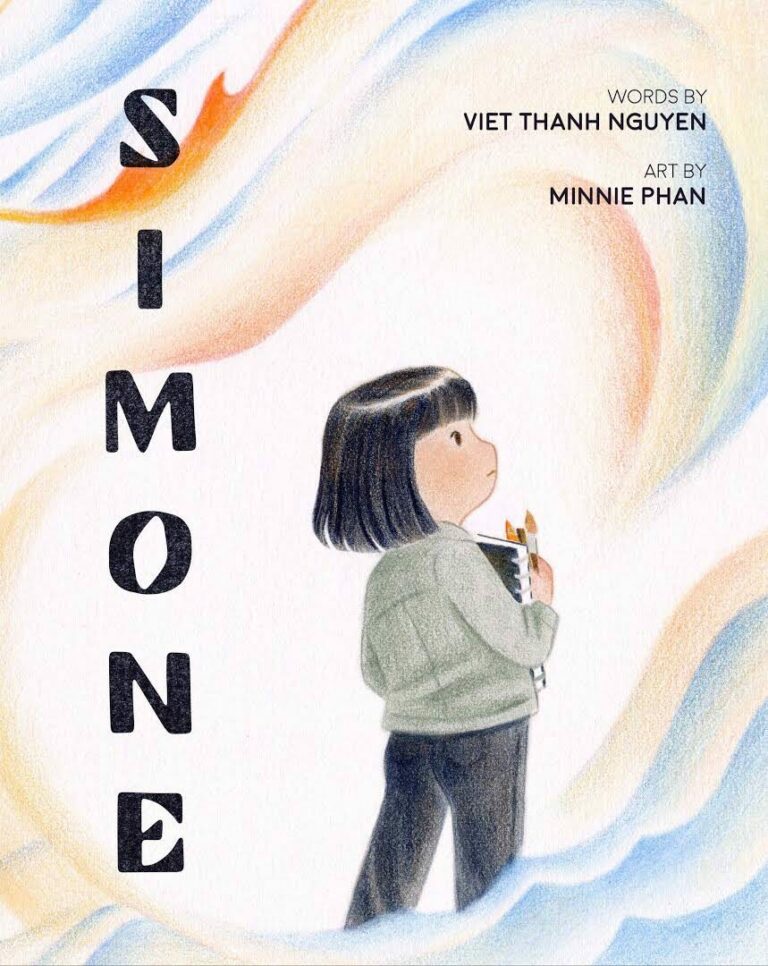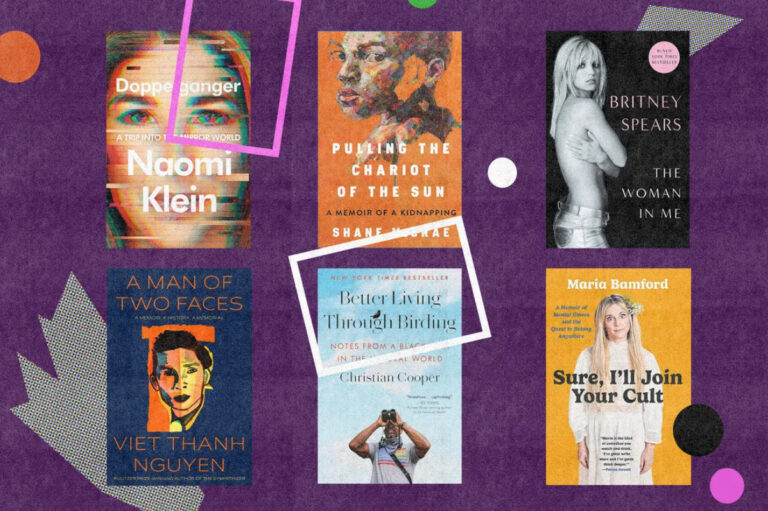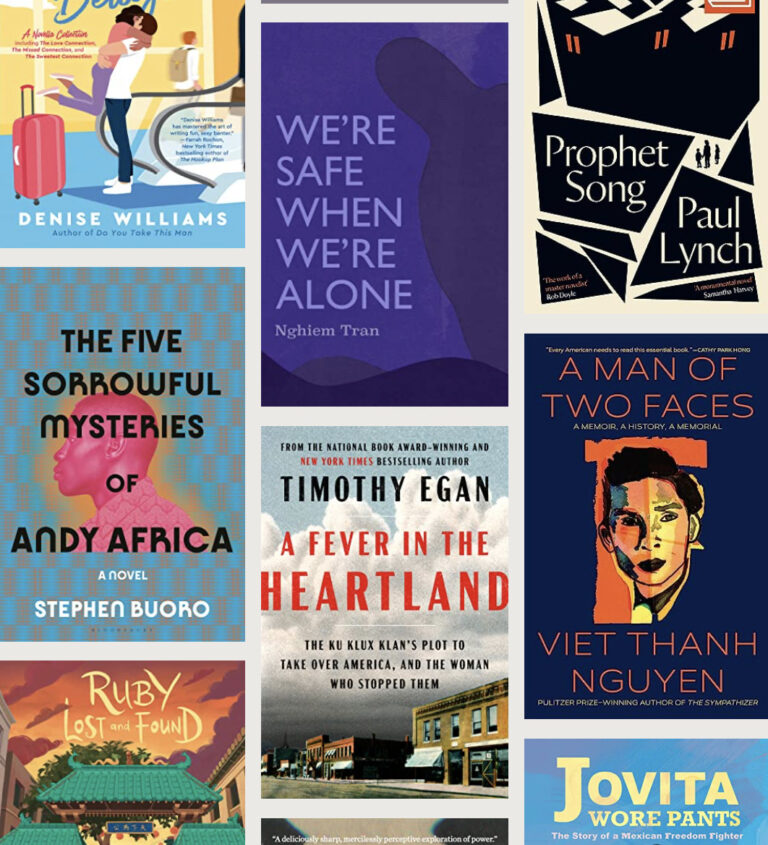Megan Mayhew Bergman of the Washington Post reviews The Refugees, Viet Thanh Nguyen’s new short story collection.

Viet Thanh Nguyen’s new collection of stories, “The Refugees,” is as impeccably written as it is timed. The book, a follow-up to Nguyen’s Pulitzer Prize-winning novel, “The Sympathizer,” is dedicated to “all refugees, everywhere.” This is an important and incisive book written by a major writer with firsthand knowledge of the human rights drama exploding on the international stage — and the talent to give us inroads toward understanding it.
Nguyen’s acknowledgments do not shy away from his relationship to the book’s title. “Thanks to my father and mother,” he writes. “Refugees in 1954 and again in 1975, they are the most courageous people I know. They saved my life.” He also thanks his partner, refugee writer Lan Duong, and his Harvard-educated older brother, Tung, whom he calls “the original refugee success story.” There is no effort to avoid the identity of “refugee” — this book interrogates the term on political and spiritual levels, and the results are saturated with pain, memory and beauty.
The protagonists of Nguyen’s stories are haunted by past lives and the dead. In the first story, “Black-Eyed Women,” the narrator and her mother are visited by her brother’s unblinking adolescent ghost, who wears the mildewed shorts he’d worn the day he died on an overcrowded boat. “Looking back,” the narrator thinks, “I could see that we had passed our youth in a haunted country.” She recalls stories from the “ancient crones who chewed betel nut and spat its red juice while squatting on their haunches in the market,” and who spun stories about the dead. She cries for “the other girls who had vanished and never come back, including myself.”
In this collection, towns are altered by war, relatives by time. In some stories, decades pass between letters home to Vietnam, as in “Fatherland.” There is a thorny dissonance between past and present. The living protagonists are often forced to carry traumatic visions with them as they try to make their way in a new country. In “I’d Love You to Want Me,” a wife wonders whether her aging husband “remembered their escape from Vung Tau on a rickety fishing trawler.” She recalled washing their faces with saltwater and spit, urging decorum. Among Nguyen’s characters, it seems painful to remember life as a refugee, but unwise to forget it. “I had not forgotten our nameless blue boat,” the narrator of the first story says, “and it had not forgotten me.” She could recall its scent, “rancid with human sweat and excreta.”
Nguyen is skilled at making us feel the disorientation and alienation of these characters navigating displacement. The narrator in “The Other Man” is “anxiously scanning the strange faces” as he lands in San Francisco, weary, unsettled by the traffic and the plaintive sound of radio jingles. He’s even aware of a different quality of light, which “differed from the tropical glare he’d always known.” He sorts through idioms and contractions, and impresses a dinner companion from Hong Kong by sucking “the dimpled skin off a chicken’s foot, leaving only the twiggy bones.” A feeling of homelessness often persists, and the characters are frequently outsiders, forced to ask: Who am I now? One narrator sees his reflection in a windowpane and fails to recognize himself.
The book is fresh, too, in its portrayal of work, central to the refugee experience. One narrator feels lucky to have a job at a liquor store and compares his fate to that of his friends: “The underage ones, like him, had become bar sweeps or houseboys for Americans, while the older, luckier ones dodged army service, becoming thieves or pimps or rich men’s servants. Unlucky ones got drafted.” Characters recall shining boots of American soldiers, and one works in his mother’s grocery store in New Saigon, pricing cans on his knees. Others have forged ahead and become professors, hearing-aid salesmen, ghostwriters and high school counselors, but do so with the knowledge of what hardships came first: penniless months, janitorial jobs and harrowing journeys across the sea.
“The Refugees” is a surprisingly sensual book, despite operating in difficult political and emotional terrain. Nguyen crafts sentences with an eye toward physicality and a keen awareness of bodies and their urges. A brother saves his sister by rendering her androgynous, slashing her long hair with a machete, binding her breasts with the fabric from a ripped T-shirt. One man recalls the pimpled cleavage of a “shivering prostitute” and the rustle of mosquito netting at night as men in a crowded boat masturbated before bed. In “War Years,” a mother charges a thief in her sheer nightgown, while “her breasts swayed like anemones under shallow water.”
In an era where writers and readers debate who gets to write what, it is refreshing and essential to have this work from a writer who knows and feels the terrain on an intellectual, emotional and cellular level — it shows. Nguyen offers stories of aftermath, but also of complexity. He gives us human beings weary of pity and tired of sharing rehearsed stories that make them seem like “one more anonymous young refugee.” In topic and in execution, “The Refugees” is an exquisite book.
Megan Mayhew Bergman is the author of the collections “Birds of a Lesser Paradise” and “Almost Famous Women” and a forthcoming novel, “The Exhibition.”


